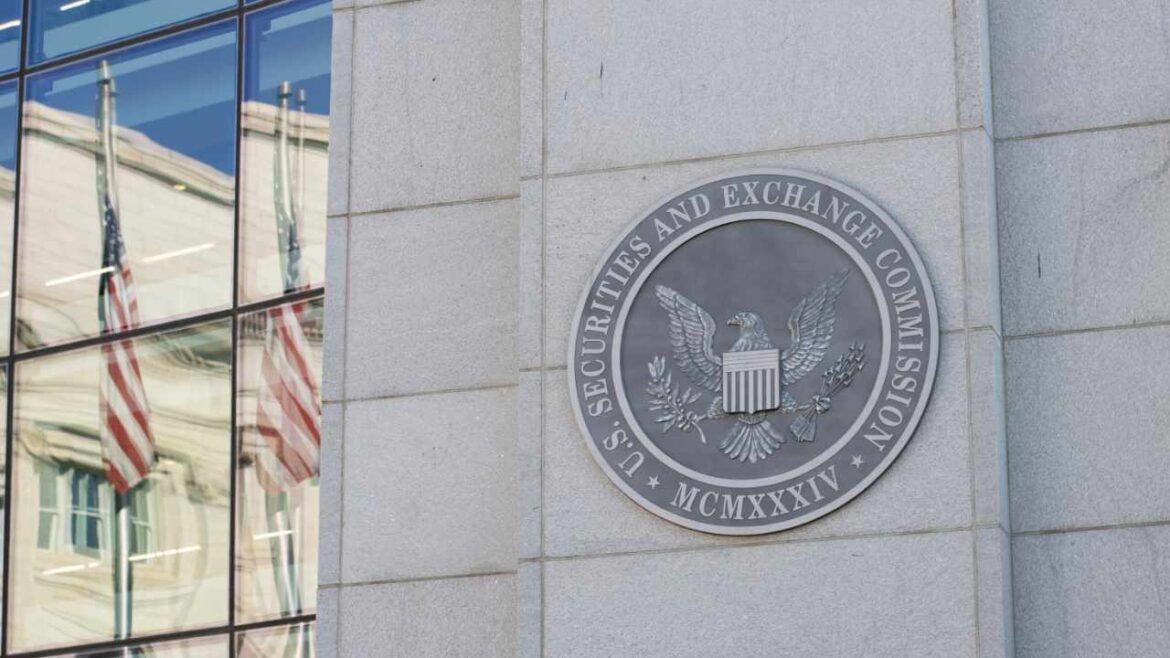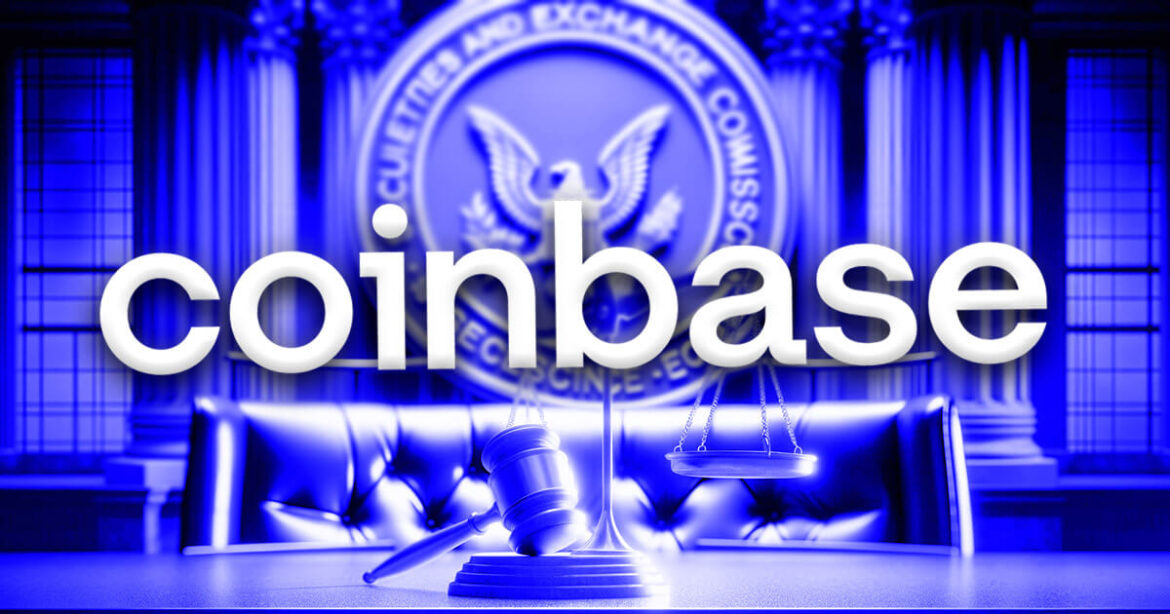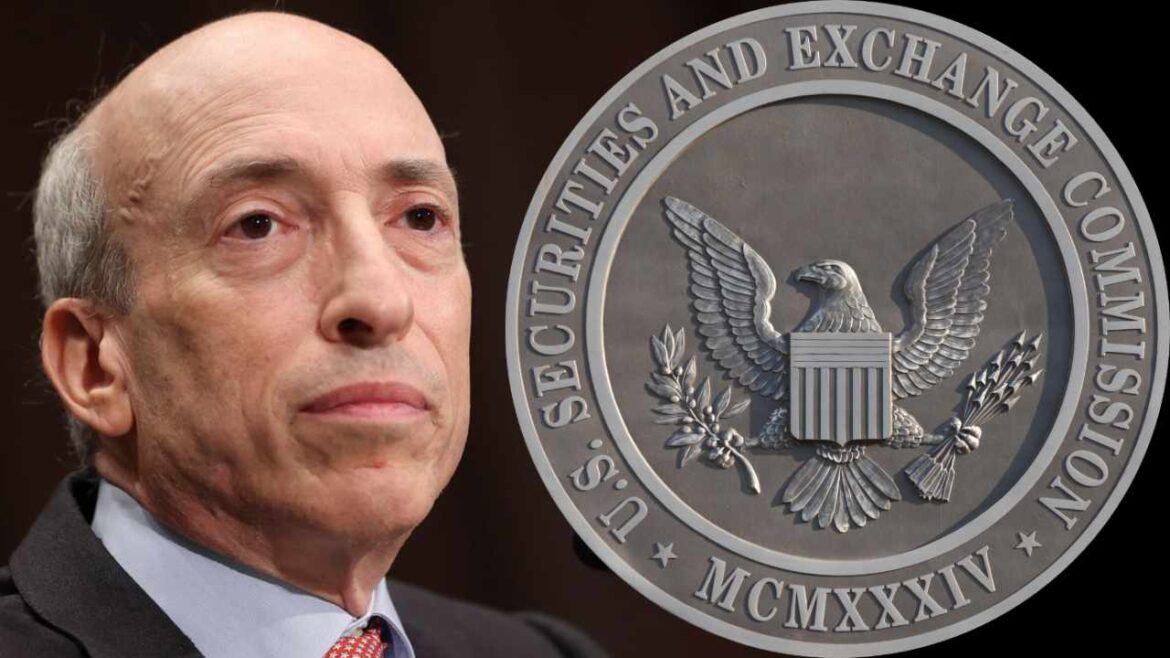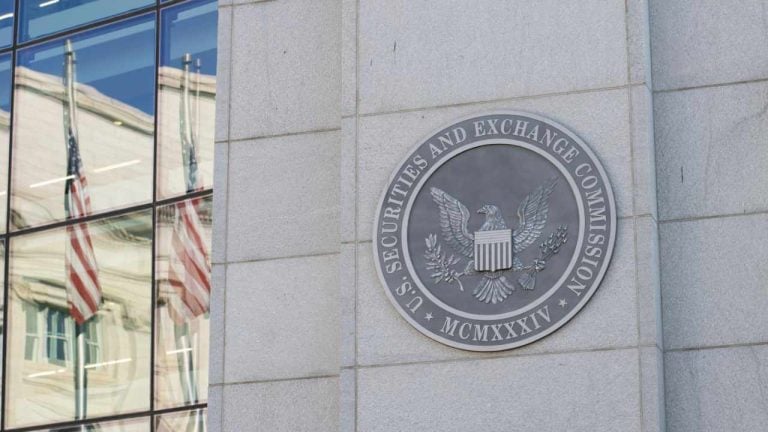 A U.S. district judge has sided with the Securities and Exchange Commission (SEC) in a ruling that declares the trading of certain crypto assets on secondary markets to be securities transactions. This decision emerged from an insider trading case involving crypto exchange Coinbase’s former product manager Ishan Wahi, his brother Nikhil Wahi, and their friend […]
A U.S. district judge has sided with the Securities and Exchange Commission (SEC) in a ruling that declares the trading of certain crypto assets on secondary markets to be securities transactions. This decision emerged from an insider trading case involving crypto exchange Coinbase’s former product manager Ishan Wahi, his brother Nikhil Wahi, and their friend […]
Source link
SEC
SEC uses insider trading judgment to enhance case against Coinbase, Binance

The US Securities and Exchange Commission (SEC) wants to leverage a decision from an insider trading case to strengthen its lawsuit against several crypto trading platforms, including Coinbase and Binance.US, according to recent court filings.
SEC claims ‘insider trading’ case is relevant
Last week, the SEC obtained a default judgment against Sameer Ramani, who was implicated as one of the beneficiaries of insider trading information involving Coinbase’s former product manager, Ishan Wahi.
In this judgment, certain digital assets were deemed securities when traded on secondary market platforms, fueling concerns within the community.
On Mar. 4, the financial regulator issued a notice that cited this default judgment, claiming it held significance for its ongoing case against Coinbase.
“In Wahi the court ruled that a defendant who purchased certain crypto assets on trading platforms purchased securities because the assets were offered and sold as investment contracts under Howey. In explaining its ruling, the court held that the Howey ‘analysis remains the same even to the extent [the defendant] traded tokens on the secondary market,’” the SEC wrote.
The regulator also cited the judgment in a recent filing against Binance.US.
Coinbase and others counter SEC moves.
However, legal representatives from different crypto platforms have countered this SEC move.
In a Mar. 5 filing, Coinbase argued that the SEC’s default judgment against Ramani holds “no weight” because it was “procured against an empty chair.”
According to the exchange:
“The Wahi order was procured against an empty chair and its reasoning reflects as much. Coinbase respectfully submits that the default judgment against Mr. Ramani should be afforded no weight.”
Coinbase’s legal chief, Paul Grewal, previously said default judgments hold little value in court. He pointed out that “the SEC was pushing against a completely open door” as the defendant didn’t show up to contest any of the charges brought against it by the agency.
Stuart Alderoty, Ripple’s chief legal officer, echoed similar views, saying:
“Relying on a default judgment is like me challenging Conor McGregor to a fight and when he doesn’t show up I shadow box for a few rounds and then declare myself the champion.”
House Financial Services Committee Advances Bill to Repeal SEC Bulletin Preventing Banks From Offering Crypto Custody Services
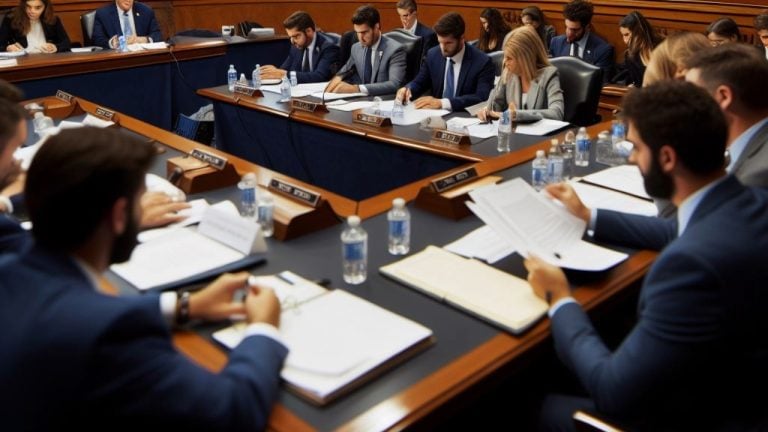 The House Financial Services Committee of the U.S. Congress has advanced a resolution that seeks to disavow SEC SAB 121, a bulletin that leaves banks and financial institutions out of the cryptocurrency custody provider market. However, the resolution, advanced with bipartisan support, is unlikely to be passed at a vote on the House floor, according […]
The House Financial Services Committee of the U.S. Congress has advanced a resolution that seeks to disavow SEC SAB 121, a bulletin that leaves banks and financial institutions out of the cryptocurrency custody provider market. However, the resolution, advanced with bipartisan support, is unlikely to be passed at a vote on the House floor, according […]
Source link
SEC faces pushback from states over crypto regulations in Kraken case

Several US state attorneys general and pro-crypto factions have lodged amicus briefs opposing the Securities and Exchange Commission’s (SEC) case against Kraken.
Montana, others brief against SEC
On Feb. 29, a coalition of state attorneys general from Montana, Arkansas, Iowa, Mississippi, Nebraska, Ohio, South Dakota, and Texas jointly submitted a brief that does not support either party but challenges the SEC’s stand in the case.
An analysis of the filing by Paul Grewal, Coinbase Chief legal officer, pointed out that the states alleged that the “SEC’s ‘ecosystem’ theory was unlawful and in fact a danger to their citizens.”
He said:
“[The] States have a strong interest in preventing the potential preemption of consumer protection and other state laws by the SEC’s attempt to regulate crypto assets as securities.”
The lawyer further highlighted that numerous states have established legal frameworks treating digital assets like money transmitters. According to him, such entities must register, meet minimum net worth requirements, ensure ample security measures, and submit to regulatory examinations.
However, these state-level regulations face potential preemption risks with the SEC actions.
Pro-crypto lawyer Bill Morgan added that the amicus brief showed that “the whole world is against the SEC’s overreach in crypto except a few people such as Elizabeth Warren with agendas and motives that are anything but a concern with consumer protection.”
Pro-crypto groups step in.
Besides the state attorneys general, several pro-crypto groups, including the Chamber of Digital Commerce and the Blockchain Association, also made similar filings against the SEC.
In its filing, the Chamber of Digital Commerce argued that the SEC’s expansion of securities laws threatens blockchain technology. So, the group urged the court to end the SEC’s attempt to regulate the emerging industry without legislative authority.
Blockchain Association and the DeFi Education Fund made similar arguments in their filing. They stated:
“The brief critiques the SEC’s attempt to regulate digital assets beyond its authority granted by Congress. The agency’s inconsistent stance on investment contracts lacks legal precedent and is creating widespread confusion in the industry.”
Webull ended crypto offerings due to SEC opposition during past IPO attempts

Online brokerage Webull decided to cut its crypto offerings because of the unfavorable regulatory landscape in the US as it waits for approval to list on Nasdaq via a special purpose acquisition company (SPAC), Bloomberg News reported on Feb. 28.
The company said that its previous attempt to carry out an initial public offering (IPO) was likely blocked due to its crypto-related services. Webull has attempted to carry out several initial public offerings (IPOs) but failed on each occasion.
Webull US CEO Anthony Denier said:
“For different reasons we were unsuccessful … I can name a few, and I think the latest one is crypto exposure. The [SEC has] not been friendly, which is widely known.”
End of crypto services
According to Bloomberg, Webull sold its digital asset business and discontinued its crypto offerings at the end of the third quarter of 2023 because of the SEC’s unclear rules for registered broker-dealers that work with crypto.
The firm continues to offer crypto buying and selling in partnership with Bakkt through its Webull Pay App, which is described as a separate business in the firm’s support pages.
However, despite Webull’s concerns around SEC regulation, at least one retail brokerage with crypto services succeeded in launching an IPO.
Webull’s major competitor, Robinhood, has offered crypto trading features since 2018 and successfully completed its IPO in 2021.
Listing via SPAC
Webull currently plans to list on Nasdaq via a $7.3 billion special purpose acquisition company (SPAC) deal with SK Growth Opportunities Corp, a blank check company.
Though there are various advantages, SPACs are broadly considered less demanding than IPOs and notably allow an upfront valuation.
According to a press release, the deal will see ordinary SKGR stock begin trading under a new ticker label, while the combined company will take on the name “Webull Corporation.”
The deal is not yet complete but awaits shareholder and regulatory approval.
SKGR shares were trading at $11.11 as of press time — up 1.18% over the last 24 hours.

Do Kwon’s lawyers told a US court on Feb. 26 that the Terraform Labs co-founder will be unable to attend the initial hearings of the SEC trial.
The lawyers did not request an adjournment and said the trial could begin as scheduled on March 25 without Kwon’s presence, according to court filings.
Unforeseen complications
Kwon’s lawyer, David Patton, said that Kwon, currently in Montenegro, may not be extradited by the end of March due to unforeseen complications in the legal process. He added that these have derailed earlier expectations of a quick extradition.
Patton said the delay is primarily caused by “unanticipated mistakes” made by the Montenegrin court in charge of Kwon’s extradition case.
The filing includes a declaration from Kwon’s Montenegrin defense attorney, Goran Rodic, which highlights several issues with the high court’s extradition ruling.
Rodic criticized the Feb. 21 decision, claiming it was based on incorrect information regarding the timing of extradition requests by the US and South Korea. He also raised concerns over several procedural errors during the legal process.
Legal saga continues
Kwon was arrested by Montenegro in March 2023 for using falsified travel documents and has remained there since. The arrest came amid ongoing investigations following the collapse of Terra in May 2022, with Kwon’s whereabouts previously unknown.
Montenegro found him guilty of possessing forged documents and sentenced him to four months in prison. His extradition case has been ongoing in tandem.
The legal battle over his extradition involves both South Korea and the US. The two countries filed extradition requests with Montenegro following Kwon’s arrest.
The SEC’s lawsuit against Kwon and Terraform, filed in February 2023, and subsequent criminal charges by the US Attorney’s Office have placed Kwon at the center of allegations involving billions in crypto asset securities fraud.
In December 2023, Judge Jed Rakoff granted summary judgment in favor of the SEC, with the trial scheduled for late March 25.
Meanwhile, South Korea wants him extradited to face trial in his home country. Some of his former associates, including Terra co-founder Daniel Shin, have already faced trial over fraud charges.
Lejilex and Crypto Freedom Alliance of Texas Sue SEC for Unlawfully Targeting the Digital Asset Industry
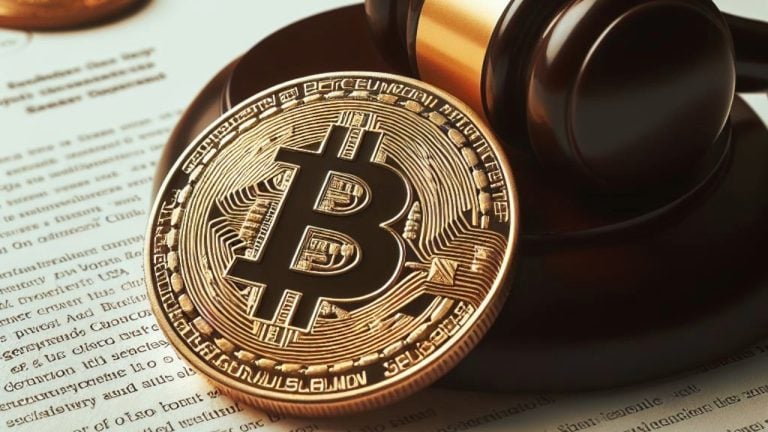 Lejilex and the Crypto Freedom Alliance of Texas, a crypto nonprofit, have teamed up to introduce a complaint against the actions of the SEC towards actors in the digital asset industry in America. The complaint alleges that the SEC has no regulatory powers over these crypto companies, having usurped functions not given to it by […]
Lejilex and the Crypto Freedom Alliance of Texas, a crypto nonprofit, have teamed up to introduce a complaint against the actions of the SEC towards actors in the digital asset industry in America. The complaint alleges that the SEC has no regulatory powers over these crypto companies, having usurped functions not given to it by […]
Source link
Peter Brandt Warns Against Trusting SEC Chair Gary Gensler — Says He Has Long History of Not Protecting Investors
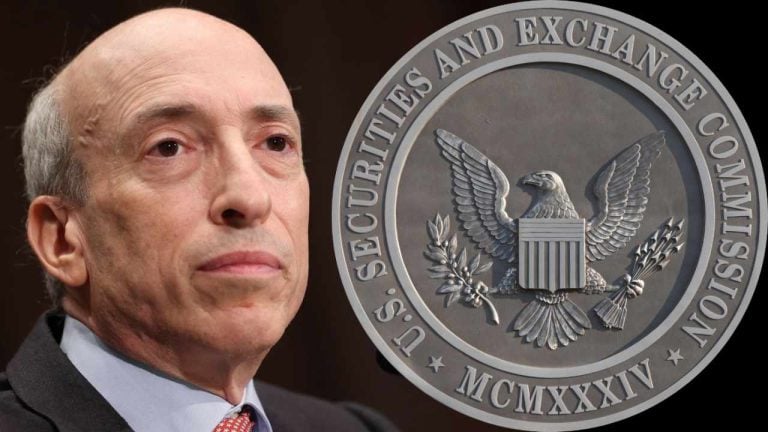 Veteran trader Peter Brandt has warned that U.S. Securities and Exchange Commission (SEC) Chairman Gary Gensler should not be trusted. He stressed that Gensler “has a long history of not looking out for the interests of investors.” Brandt further emphasized that the SEC chairman “was instrumental in the bankruptcy” of a major company and was […]
Veteran trader Peter Brandt has warned that U.S. Securities and Exchange Commission (SEC) Chairman Gary Gensler should not be trusted. He stressed that Gensler “has a long history of not looking out for the interests of investors.” Brandt further emphasized that the SEC chairman “was instrumental in the bankruptcy” of a major company and was […]
Source link
US banking groups lobby SEC for rule change to enter Bitcoin ETF market

Multiple US banking groups are seeking inclusion in the Bitcoin exchange-traded funds (ETFs) landscape, prompting a request for a rule change to facilitate their participation.
In a Feb. 14 letter to SEC Chair Gary Gensler, a coalition comprising the Bank Policy Institute, the American Bankers Association, the Securities Industry and Financial Markets Association, and the Financial Services Forum advocated their stance.
Crypto custodial
The coalition urged the SEC to reassess a regulation that made it expensive for traditional banks to offer crypto custody services. Current rules require these financial institutions to classify cryptocurrencies as liabilities on their balance sheets. Therefore, the banks must allocate assets equivalent to the crypto holdings to mitigate potential losses and adhere to the strict regulatory capital requirements.
The coalition contended that this rule hampered them from acting as custodians for the newly introduced Bitcoin ETFs, a role they commonly undertook for most other Exchange-Traded Products (ETPs). This limitation, the group argued, stemmed from factors such as the “Tier 1 capital ratio and other reserve and capital requirements.”
They added:
“If regulated banking organizations are effectively precluded from providing digital asset safeguarding services at scale, investors and customers, and ultimately the financial system, will be worse off, with the market limited to custody providers that do not afford their customers the legal and supervisory protections provided by federally-regulated banking organizations.”
The group further emphasized the need to mitigate the concentration risk of a single non-bank entity dominating the custodial services for these Bitcoin ETFs. According to the group, allowing prudentially regulated banks to offer custodial services for SEC-regulated ETFs, akin to qualified non-bank asset custodians, could address this concern.
Coinbase, the largest US-based crypto trading platform, is the unnamed non-bank entity mentioned in the letter. The exchange serves as the asset custodian for 8 of the ETF issuers.
Recommendations
The group urged the SEC to refine the definition of crypto outlined in Staff Accounting Bulletin 121 (SAB 121) to exclude traditional financial assets recorded or transferred on blockchain networks.
“SAB 121 makes no distinction between asset types and use cases, but instead generally states that crypto-assets pose certain technological, legal, and regulatory risks requiring on-balance sheet treatment,” they added.
Additionally, they proposed exempting banks from the on-balance sheet requirements while upholding disclosure obligations. This approach would enable banks to partake in select crypto activities while maintaining transparency for investors.
SEC Inspector General investigating crypto conflicts of interest within federal agency

The US Security and Exchange Commission’s (SEC) Office of Inspector General (OIG) is investigating cryptocurrency-related financial conflicts of interest identified by the accountability group Empower Oversight.
In a Feb. 15 statement, Empower Oversight disclosed that the SEC’s division was in the “final stages of completing” an open investigation into matters relating to the failures of the SEC’s Ethics Office and a former official, William Hinman.
Hinman is accused of participating in matters where he held a financial stake, notably delivering a contentious speech asserting that specific digital assets, such as Ethereum, were not subject to SEC regulation as securities.
Critics within the Ripple XRP community contend that Hinman’s speech unfairly favored Ethereum, potentially giving it an edge over other digital assets in the market.
Empower Oversight emphasized its concerns by presenting documentation indicating that key figures from Ethereum, including co-founders Joseph Lubin and Vitalik Buterin, were involved in drafting the infamous speech.
In addition, the watchdog group also declared that Hinman “blatantly disregarded” instructions not to meet with specific individuals while working at the SEC, such as his former employer, Simpson Thacher, a member of the Ethereum Enterprise Alliance (EEA.)
“When Hinman departed the SEC in December 2020, he returned to Simpson Thacher as a partner. That same month the SEC sued Ripple, alleging XRP was an unregistered security,” Tristan Leavitt, president of Empower Oversight wrote.
This matter was officially brought to the attention of the OIG in May 2022.
Threatens Lawsuit
Empower Oversight has threatened the financial regulator with a lawsuit if it fails to provide information regarding its investigations by Feb. 23.
The group noted that the SEC has failed to provide information about the case since it filed a Freedom of Information Act (FOIA) in May 2023.
Leavitt said:
“The silver lining is that now we know one reason for the stonewalling is that there actually is an active inquiry by the inspector general, which is almost done. However, whether the OIG report thoroughly addresses all the issues we raised remains to be seen because we don’t know the exact scope of the inquiry. The SEC’s OIG needs to get this right and help prevent similar conflicts of interest from undermining public faith in the SEC’s work in the future.”

